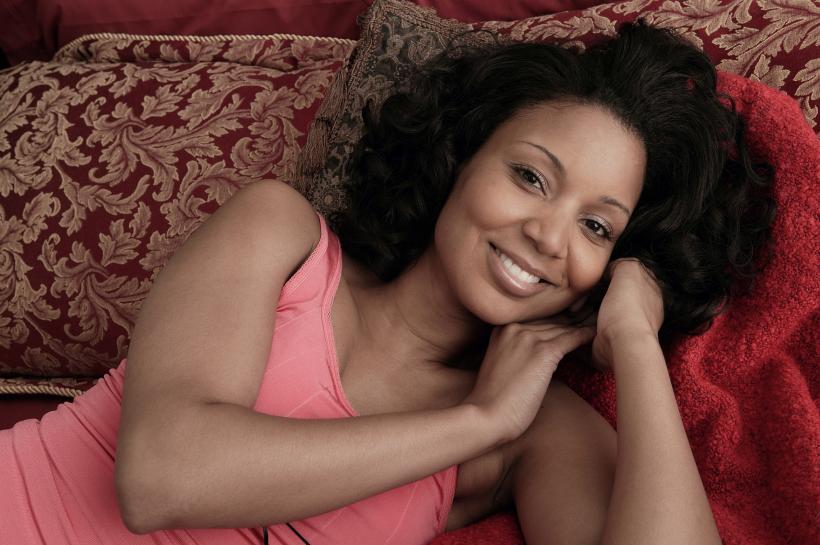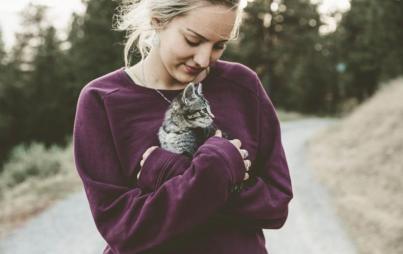
The changes in our bodies tell our life stories, for better or worse. Image: Thinkstock.
The body begins to change the moment we are conceived and continues until we take our last breath.
Content notice: pregnancy.
All of my friends are beautiful — at least that’s how I see them. Unfortunately, they don’t always see themselves that way.
Every time we get together, they begin to apologize for their appearances or they complain about their perceived flaws, and it makes me sad. They don’t like how their bodies are different now that they’re getting older, and now that they’ve had babies. It seems like every day that passes, they’re finding some new reason to hate the way they look.
Lately, I’ve even noticed a scary trend where women I know are berating themselves during pregnancy. One friend felt the need to repeatedly tell people that she was pregnant just in case someone might mistakenly think she had just gotten fat. Others agonize over the changes that pregnancy hormones cause to their skin and hair. They wonder if they’re putting on too many pounds, if they’re going to get stretch marks, and they start planning expensive, postpartum medical procedures designed to help them “get their bodies back,” as if they were lost or something!
When I was pregnant, I remember feeling a great sense of freedom because for the first time in my life, I didn’t have to suck in my belly. But then someone commented on how “huge” I was, and I felt a great sense of shame — even though the comment wasn’t meant as an insult. I began to question how I looked and wondered if I was doing this whole pregnancy thing “right”? Was I supposed to look a different way?
The way my body seemed to “take over” as it grew a baby was exciting, but that lack of control over myself was scary, too.
Both when we are pregnant and as we continue to age, we become acutely aware of the fact that our bodies, in a sense, have minds of their own. The way my body seemed to “take over” as it grew a baby was exciting, but that lack of control over myself was scary, too. The same thing is happening again as I have to face the fact that I am a perimenopausal woman in her 40s who still feels like a 23-year-old at heart. I cannot stop the progression of time and its effects on my physical appearance, regardless of how youthful my spirit may be.
Ultimately, what everyone is freaking out about is that we don’t really have a say in what our bodies do. We strive to have some level of control over our health and appearance, but there is only so much we can do. In a society that values power and control, when we suddenly understand that our bodies will submit to the forces of nature, time, genetics, and circumstance whether we want them to or not, we sometimes panic.
I recently had the revelation that living in a human body is a big lesson in embracing change. None of us are immune and this lesson is so universal that every single person on Earth has to accept this truth. We ultimately cannot control our bodies. The body begins to change the moment we are conceived and continues until we take our last breath.
We owe it to ourselves and our children to accept our bodies and to see dark spots, small boobs, undereye circles, crows feet, and “funny-looking skin” as a beautiful and natural part of the human experience.
Our bodies are meant to change because they’re built to help us adapt to our environments. We lose our baby teeth and grow big molars. Wounds heal into scars, sun tans our skin and lightens our hair. When we physically exert our muscles, they get stronger and sometimes bigger. Often used hands and feet make callouses to protect us from pain. The body usually means well, and when we’re young we usually tend to take our bodies’ adaptations for granted.
The changes in our bodies tell our life stories, for better or worse. Scars, stretch marks, freckles, wrinkles, and gray hairs are lasting imprints that note the passing of time. Over the course of a life, we can gain and lose weight, lose hair (sometimes growing it back, sometimes not), sustain injuries or have illnesses that sometimes leave permanent marks. There is nothing we can really do about any of it.
Change is our inescapable nature. Our bodies are never going to be the same from day to day, so in trying to live up to some arbitrary beauty ideal, we are chasing after an uncatchable illusion and causing pointless misery. Always viewing our physical selves through a lens of criticism and comparison is a path to endless suffering.
We have to accept the fact that our bodies are meant to change, rather than lamenting and fighting these changes, especially when we are pregnant and nursing and aging. We owe it to ourselves and our children to accept our bodies and to see dark spots, small boobs, undereye circles, crows feet, and “funny-looking skin” as a beautiful and natural part of the human experience. I believe that when we can at least come a little closer to doing this, we can get used to all the changes that life brings us, physical and otherwise, and we can live happier and more fulfilled lives.
"Our Bodies Are Meant to Change" by Victoria Fedden originally appeared on Babble, and was reprinted with permission.
More from Babble:







